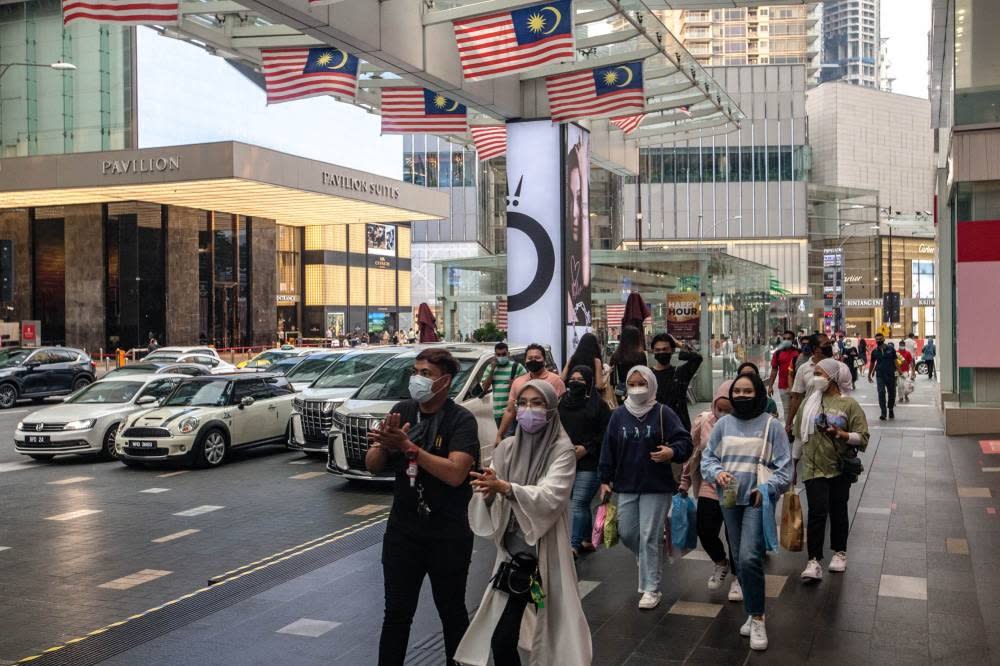Survey: Growing religious observance reshaping consumer landscape in Malaysia, SE Asia

KUALA LUMPUR, Sept 22 — Growing religious observance — fuelled by government policies implemented to promote sectors such as halal foods and Islamic banking, as well as political parties courting Muslim votes — has reshaped the Muslim consumer landscape in Malaysia and its neighbouring countries in merely a single generation, a report has indicated.
Because of this, the report, penned by Wunderman Thompson Intelligence, in collaboration with VMLY&R Malaysia’s Muslim Intel Lab titled “The New Muslim Consumer: How Rising Observance is Reshaping the Consumer Landscape in South-east Asia and Beyond”, showed that 33 per cent of its respondents say they are more observant of their faith compared to their parents at their age.
The report said that prior to this, Muslim-influenced consumerism would only encompass food — primarily the avoidance of pork and alcohol — but has now expanded to include fashion, banks, travel, education, as well as personal spending, investment and donations, leading to the emergence of modest fashion brands, Shariah-compliant banks, hijabi-only hair salons, as well as halal dim sum restaurants.
It also noted that this urbanisation of Islam has prompted the growth of Islamic stamps of approval, such as halal certification for products or services.

Hew Wai Weng, a research fellow at Universiti Kebangsaan Malaysia (UKM) who studies the Muslim middle class in Malaysia and Indonesia, dubbed this “liquid Islamism”, a riff on the concept of “liquid modernity” which describes constant change within contemporary society.
“Urbanisation is one of the reasons halal certification has become so important in Malaysia and Indonesia.
“This (certification) is especially important for those who leave the familiarity of close-knit small towns and villages for cities, as they look for a network they can trust,” he was quoted as saying in the report.
Based on this, the report found that Islam has become a significant part of daily life, with 91 per cent of respondents saying that having a strong relationship with Allah is very important, on par with health care and followed closely by family, at 89 per cent.
On the other end of the spectrum, only 34 per cent of the respondents view wealth as important, only 28 per cent say following their passions is important, and only 12 per cent cite fame.

The report also stated that men are significantly more likely than women to prioritise marriage, children and career, while women are significantly more likely to place importance on having new experiences and experiences that are different from their parents, as well as travel.
In terms of gender roles and responsibilities, the report found that a majority of respondents indicated that men provide the most financial support for their households.
However, a significant minority — two out of five — of women say they provide the most financial support for their household.
Of that number, 17 per cent of women consider themselves to be heads of their households as they provide the most financial support within it.
The urbanisation of the Muslim consumer has also led to an agreement that young women should have more access to education.
However, fewer than one-third strongly feel that young women should have more freedoms than they do now, or more of a voice in their mosque community or government.

In terms of travel, the availability of halal restaurants and hotel options are just as important as the cost of travelling for Muslim consumers and have become top drivers of destination choice when considering international travel.
Muslim consumers will also now take note of the friendliness of the destination’s governments and citizens towards Muslims when deciding.
The survey also showed that Muslims are adopting technology to further their halal lifestyle, including using mobile apps, with 42 per cent and 39 per cent of men shopping online at least once a week.
It said that consumers are most likely to turn to online shopping for clothing, household products, beauty products, tech products and groceries, while men are more likely to purchase tech products online, but otherwise women are more likely to make online purchase.
The survey covered 1,000 consumers in Indonesia and Malaysia, conducted in May 2022 by SONAR, Wunderman Thompson’s proprietary online research tool.



